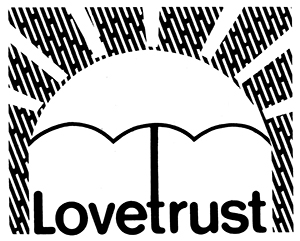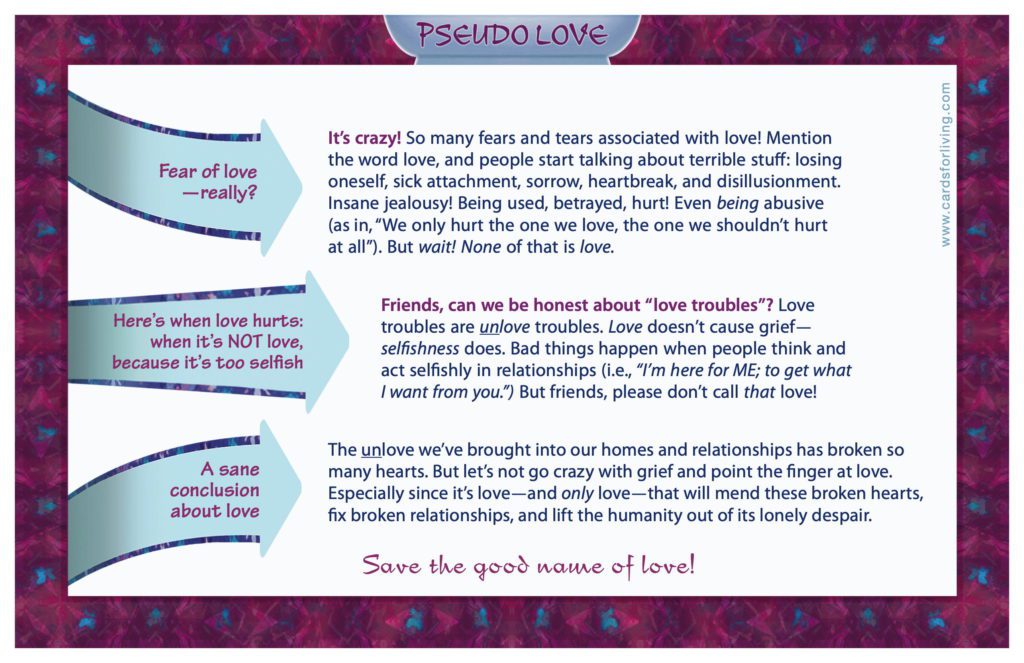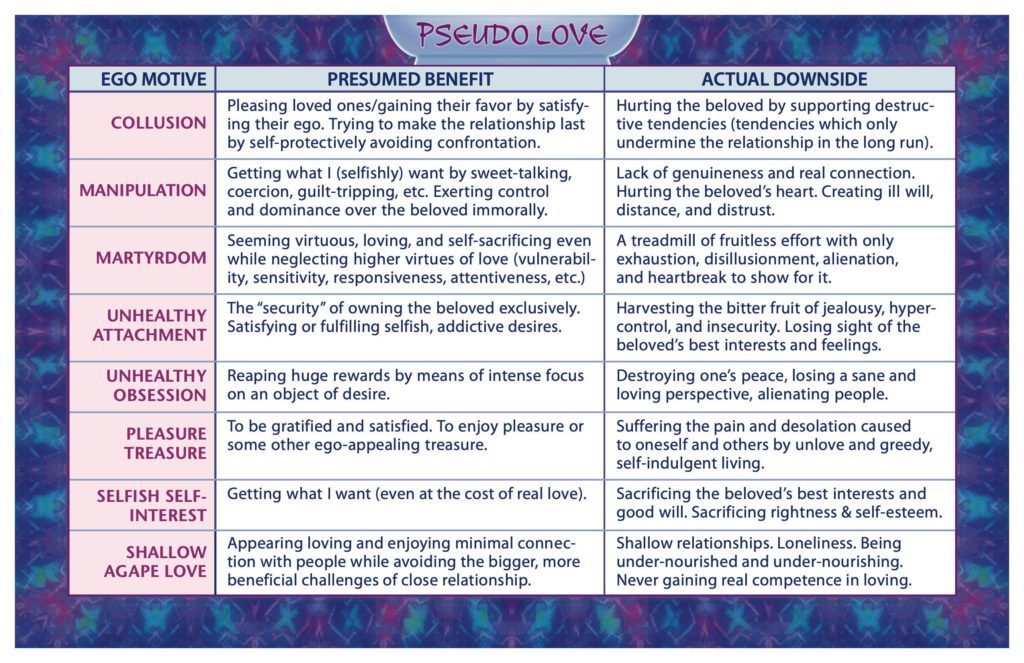

It’s a classic movie plot: A couple falls in love, but there’s a dark cloud on the horizon…. The courtship begins with a misrepresentation or misunderstanding, which is kept up through most of the movie. But somewhere near the end, the relationship gets serious enough that the deception can no longer be maintained. The pretender admits the truth, hoping that it won’t end the relationship. It very nearly does.
In real life, when a pattern of deception is discovered the relationship is not likely to survive. No one likes to be deceived — especially by someone emotionally close and important to them. We human beings need sincerity from others. Without sincerity, there’s no solid ground in the relationship. If we sense someone is being insincere with us, we can’t trust them, we can’t feel close to them, and we don’t feel safe opening up to them. We feel manipulated—and we’re right.
In other contexts, manipulation is fairly common and even “socially acceptable”: A woman who wants to snare a rich husband and uses her seductive powers to rope him in. A child who drums up and holds onto an exaggerated bad mood in the attempt to get what he or she wants. A “yes-man” who flatters and sucks up to the boss, hoping to get a promotion or raise. An aspiring actress who sleeps with the producer to maximize her chances for a good role. A long-estranged family member who strategically reconciles with family elders to insure a chunk of the family fortune.
These examples are almost caricatures, source material for stand-up comedians. The emotional stakes are higher, however, when subtler forms of manipulation occur in important love relationships, because in that context selfishly motivated words and actions undermine trust and the long-term viability of the relationship. For example:
- Using sex to avoid the difficult conversations needed to truly resolve conflicts or hurt feelings
- Habitually being overly critical to keep the upper hand in the relationship
- Guilt-tripping a loved one to get one’s way
- Habitually overreacting to minor situations to get energy and attention from others, and avoid giving one’s own energy and attention to them
- Using threats and emotional blackmail to get concessions or gifts from one’s partner
The trouble is, we don’t always immediately recognize manipulation in a relationship. We want to assume the sincerity of others—especially those we depend on. And sometimes, we want to believe insincerity from others. For example, when we’re being buttered up with compliments, or appeased with false promises, or swooning over declarations of love or passion. In these cases, we’re willing—perhaps even enthusiastic—participants in a manipulative relationship. Then later, when the relationship inevitably starts feeling superficial, cold, and distant, we wonder where the love went. We don’t realize that all along, the problem was selfishness, mislabeled as “love.”
There is nothing inherently wrong with sex, with critical feedback, with openly expressing one’s feelings—even with giving a consequence or ultimatum when appropriate. What gives each of these actions their meaning and effect depends on the intention behind them.
Think about it: Is a knife good or bad? A knife is good, even life-saving, in the hands of a surgeon. However, it’s dangerous, even deadly, in the hands of a criminal. The meaning and effect of everything we say and do is always determined by our intention. A deed is just a door through which our intention passes on its way to creating a real-world effect.
When we are insincere with a loved one, we are not doing it for their sake; we’re doing it for our own selfish reasons. We want to curry favor; we want to save face or stay out of trouble; we want to get our way; we want to avoid being authentically vulnerable in the relationship. None of those goals benefit the beloved or support the viability of the relationship. In fact, the beloved and the relationship are being sacrificed on the altar of what we want. That’s what manipulation is: being insincere to get what we selfishly want.
Let’s call a spade a spade. That’s not love.
Manipulation is just one way that unlove masquerades as love. To learn more about the difference between love and unlove and other common examples, download or print the Pseudo Love Card from the Cards for Living website.
Love,
Your friends at LoveTrust



